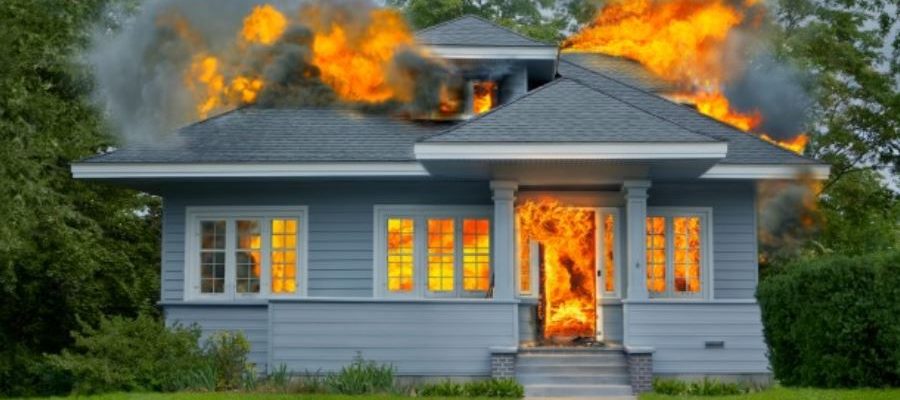ORLAND PARK, Ill., Nov. 21, 2017 – A fast-moving house fire struck the rural community of Lost Nation, IL, near Dixon, IL, overnight, killing six family members and several pets. According to the Ogle County Sheriff’s Department, one of the residents of the home called 9-1-1 just after midnight, reporting smoke in the basement. Eight fire departments from the surrounding area responded, finding the home fully engulfed in flames upon arrival. The cause of the fire is under investigation.
“Rural communities have well-documented challenges that increase home fire risk,” said Tom Lia, executive director of the nonprofit Northern Illinois Fire Sprinkler Advisory Board.
According to the National Fire Protection Association (NFPA), rural fire death rates are very high. Among the contributing factors is distance both from neighbor to neighbor and from community to community. It can be difficult for fire service to reach rural residents with prevention and education as well as with fire suppression reports the NFPA.
According to Lia, installing home fire sprinklers is an effective and strategic decision that improves any community, but sprinklers uniquely address the fire challenges characteristic of rural communities.
“Folks may live miles away from their closest neighbor and fire departments may be even further away,” said Lia. “Rural fire departments are typically smaller, and they often lack the funding, training and equipment that departments in larger municipalities receive. Combined, these rural problems can become life safety problems.”
Without intervention, a house fire can grow and become deadly in two minutes or less according to the NFPA. Installed fire sprinklers put water on the flames automatically and quickly, controlling fire, smoke and heat so residents can escape.
“One- and two-family homes are where we are at the greatest danger of fire injury and death,” Lia noted. “Because of this risk, the latest editions of the International Code Council (ICC) and NFPA model building codes require fire sprinklers in all new homes. But when home fire sprinkler legislation is initiated here in Illinois, there is intense push-back from homebuilders and real estate associations.”
Often, that push-back is based on unsubstantiated cost claims and timeworn myths about fire sprinkler water damage. But according to Lia, scare tactics can be successful and when they are, it is costing lives by allowing sub-standard housing to be built.
“This is the latest in a long line of terrible fire losses in our state that underscore how fast a home fire becomes deadly,” said Lia. “This family’s tragedy should also serve as a reminder to officials of how shortsighted it is to omit or water down home fire sprinkler legislation. Rather, we should be working together to make our communities safer for residents and for firefighters.”

